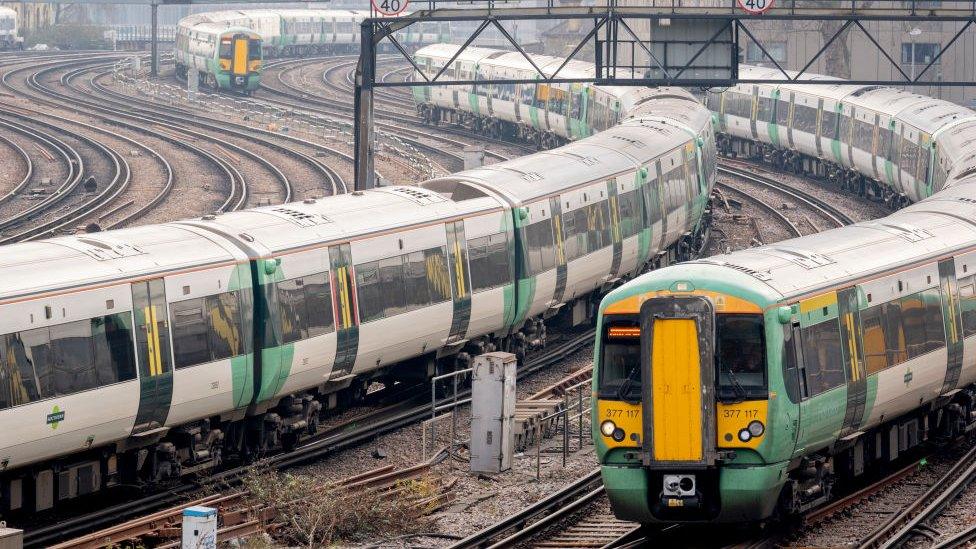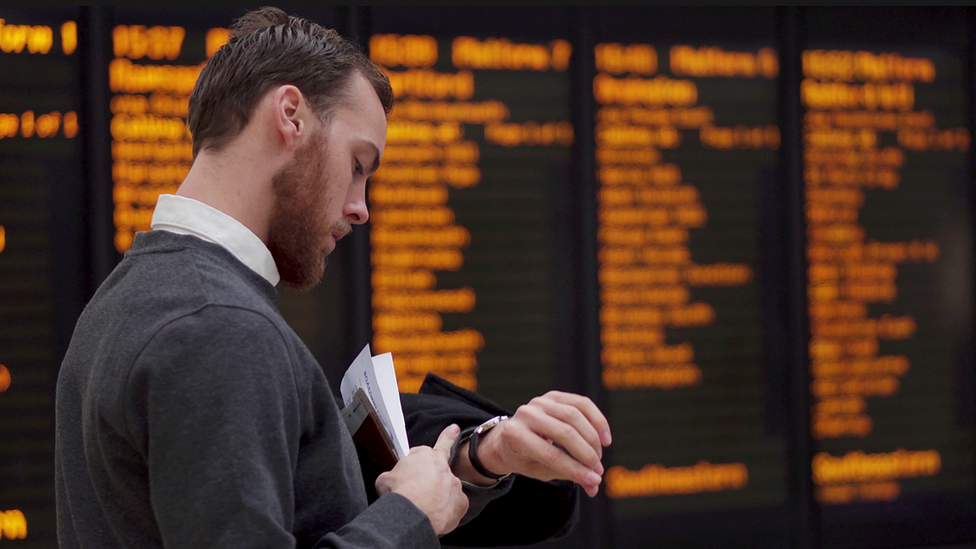Rail workers to stage more strikes in pay dispute
- Published
- comments

UK rail workers are set to walk out in a fresh series of strikes in March and April in a long-running dispute over pay, jobs and conditions.
Members of the RMT union from 14 train operators will strike on 16, 18 and 30 March, and 1 April, the start of Easter school holidays for many.
Members at Network Rail, responsible for tracks and bridges, will strike on 16 March and then ban overtime.
Rail bosses said the strikes are "unjustified".
"This latest round of strikes is totally unjustified and will be an inconvenience to our customers, and cost our people more money at a time they can least afford it," said a spokesperson for the Rail Delivery Group (RDG), which represents train companies.
The RDG added that the union had initially agreed that the industry needed "modernisation" to fund any pay rises, but had now "reneged on that position" and did not want reforms.
The RMT, which represents 40,000 workers, said there would be "sustained and targeted" industrial action over the next few months.
"Rail employers are not being given a fresh mandate by the government to offer our members a new deal on pay, conditions and job security," RMT General Secretary Mick Lynch said.
Network Rail's chief negotiator Tim Shoveller said that the union's leadership had shown its "true colours by choosing politics over people".
"Thousands of employees are telling us they want the improved offer that we have tabled, an offer worth at least 9% over two years - rising to over 14% for the lowest paid, provides job security with no compulsory redundancies and 75% discounted rail travel," he added.
"But instead of offering members a democratic vote with a referendum, the RMT leadership is hiding behind a sham 'consultation,'" Mr Shoveller said.
Last week, the RMT rejected the rail industry's latest offers, which Network Rail and train companies had called their "best and final" offer - but which RMT boss Mick Lynch branded "dreadful".
The RMT has said it wants an unconditional pay offer, but rail industry representatives have said any pay offer would have to come with changes to working conditions in order to fund any rises in pay.
Transport Secretary Mark Harper said: "Just days after denying its members a say on their own future, the RMT leadership is now trying to make them lose multiple days' wages through yet more strikes."
The country's railways were "not currently financially sustainable" and these offers "would have given workers what they want and, crucially, the passengers what they need", he added. "Passengers want this dispute to end."
Rail workers represented by Aslef and the RMT have been on strike on various dates throughout the winter.
Separately, the Royal College of Nursing announced its biggest walkout of the pay dispute in England. Its members at half of hospitals, mental health and community services will take part in the 48-hour strike from 1 to 3 March.
And Border Force workers will begin a strike on Friday as part of their dispute over pay, jobs, pensions and conditions in the civil service.
Members of the Public and Commercial Services union in Dover and French ports including Calais will walk out on Friday and over the weekend. The union claims inexperienced staff were being brought in to cover for striking Border Force workers.
Hundreds of thousands of workers in other sectors across the UK - including teachers, civil servants and barristers - have been on strike. Most of those taking part want more pay to keep up with rising prices.
Related topics
- Published9 May 2024

- Published11 February 2023

- Published1 August 2023
